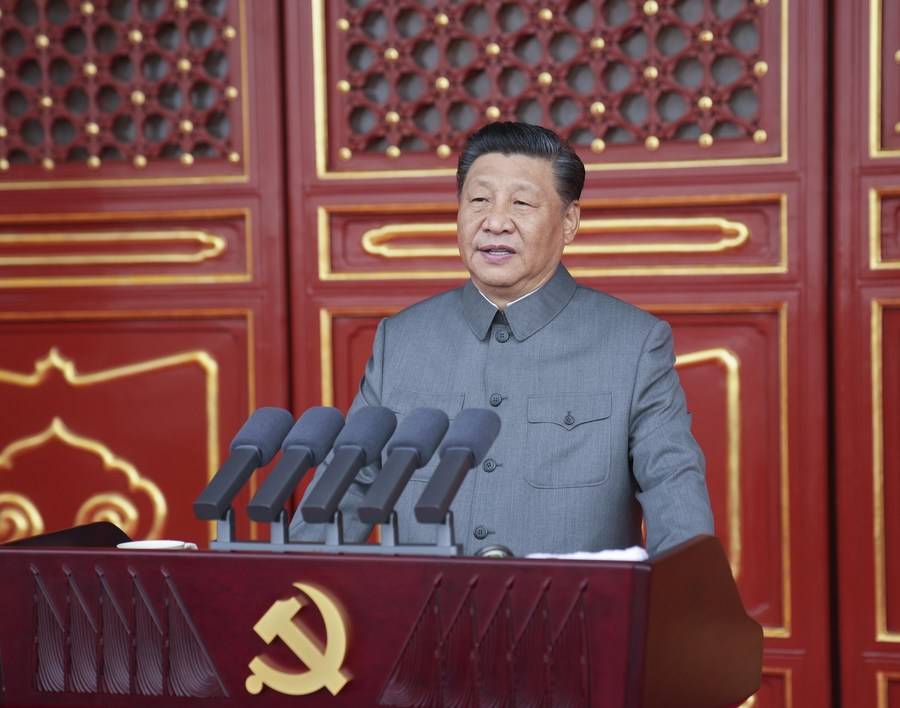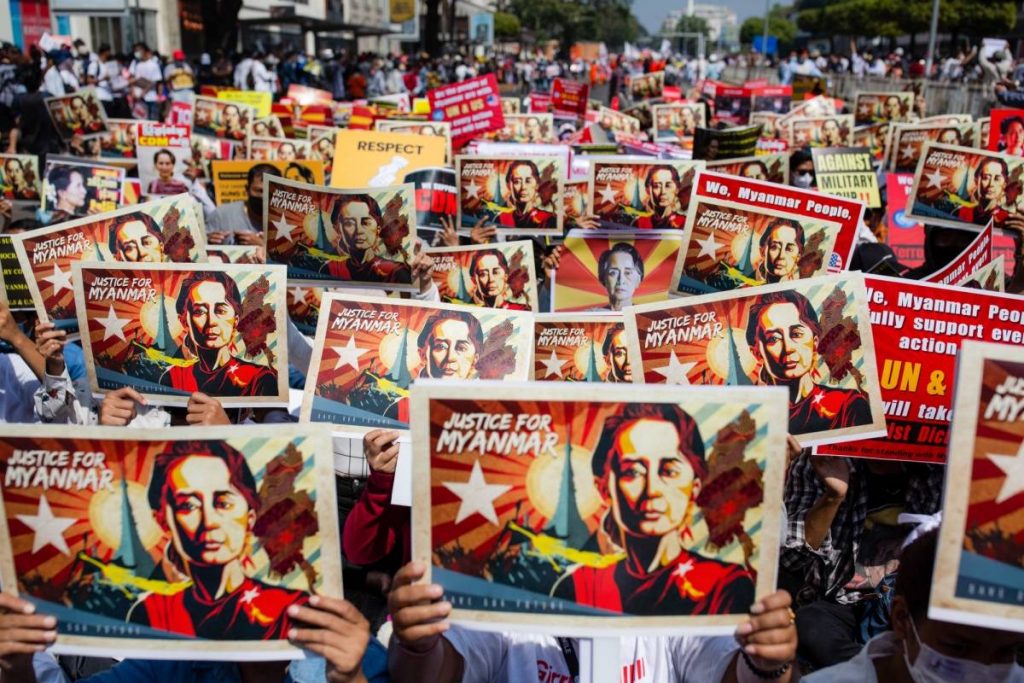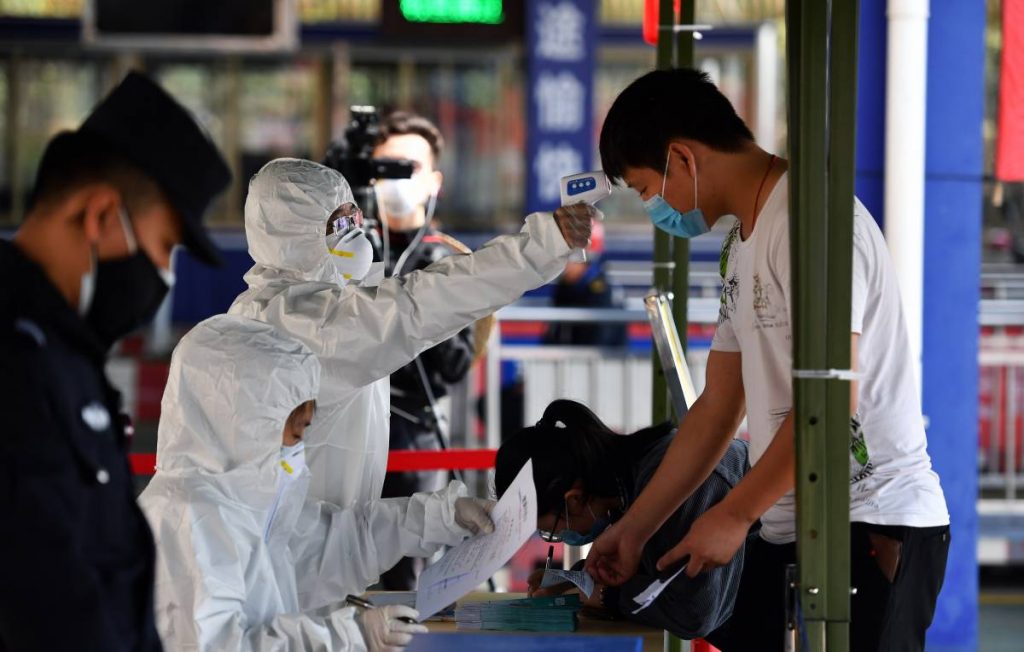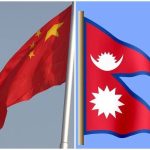President Xi Jinping said that China will elevate its armed forces to world-class standards with the aim to equip itself with “greater capacity” to safeguard its “national sovereignty, security, and development interests”, a report by Asian Lite
As the Chinese Communist Party (CCP) marked 100 years on Thursday, President Xi Jinping hailed China’s “irreversible” course from colonial humiliation to great-power status at the centenary celebrations.
The CCP was founded in July 1921, in a small room in Shanghai’s then French-controlled district, with a mere 13 people in attendance. Today, it has more than 95 million members, almost 7 per cent of the country’s population, reported CNN.
Xi, who is chairman of the Central Military Commission and general secretary of the CPC’s Central Committee, said the “era of China being bullied is gone forever” praising the party for raising incomes and restoring national pride.
Xi, wearing a Mao-style jacket, was speaking above the giant portrait of Mao Zedong which dominates Tiananmen Square, said the “great rejuvenation of the Chinese nation has entered an irreversible historical course” and vowed to continue to build a “world-class” military to defend national interests.
The podium from where Xi was speaking was the same place where Mao proclaimed the foundation of the People’s Republic of China on the October 1, 1949.
In the meeting where the CCP was born, only two men were present at the founding of the People’s Republic of China (PRC) – former Presidents Mao Zedong and Dong Biwu. The PRC came into existence on October 1, 1949, after a bloody civil war with nationalist party Kuomintang’s (KMT) leader Chiang Kai-shek. Since its formation, it has been redefining its boundaries, culminating in tensions with its neighbours.
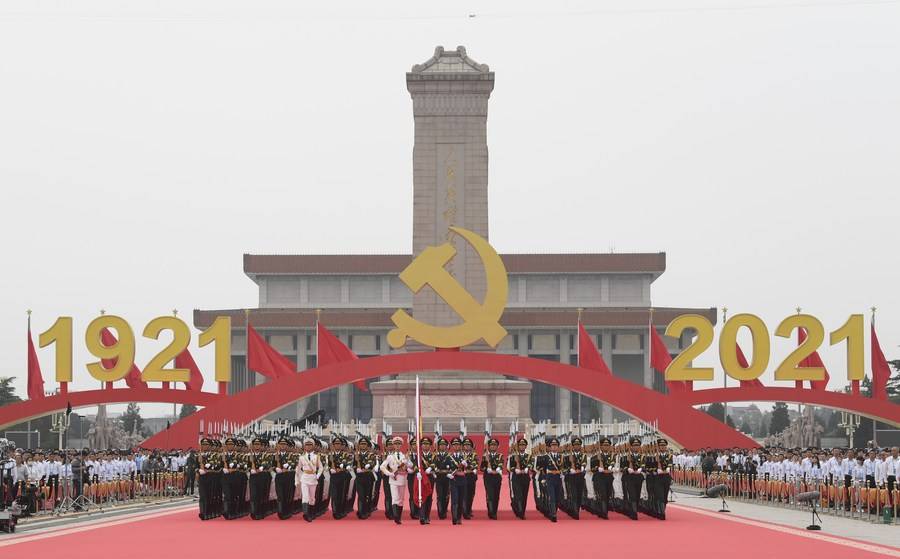
The Chinese government occupied Tibet in 1950, destroying 98 per cent of the monasteries and nunneries, and has ever since tried to control the region. More than 1 million people have been killed in Tibet by Chinese forces. During a meeting, Mao had told the 14th Dalai Lama, that “religion is poison.”
Under Mao’s regime, farmers were made to leave to their fields to make steel for build the machinery required for industrialisation. Despite his promises of a “Great Leap Forward”, a massive famine swept China, devastating the country and killing as many as 30 million people.
Mao also claimed that the groups opposed to communist ideology needed to be cleansed. As a result, mobs of students known as Red Guards attacked people whom they believed to be harbouring imperialist habits. People were tortured, abused, forced to confess and locked in makeshift camps. This ended with Mao’s death in 1976, CNN highlighted.
Under Deng Xiaoping’s regime, China witnessed the worst episode of stifling free speech, when the death of a popular Chinese politician sparked nationwide pro-democracy protests, including the largest one in Tiananmen Square.
ALSO READ: China operationalises biggest hydro project in seismic zone
On June 4, the Chinese military opened fire on the protesting citizens, killing at least 241 people, although human rights groups have estimated that thousands could have been killed in Beijing alone, according to CNN. The incident led to sanctions and international condemnation.
Since the massacre, the CCP has silenced calls for democracy and civil liberties.
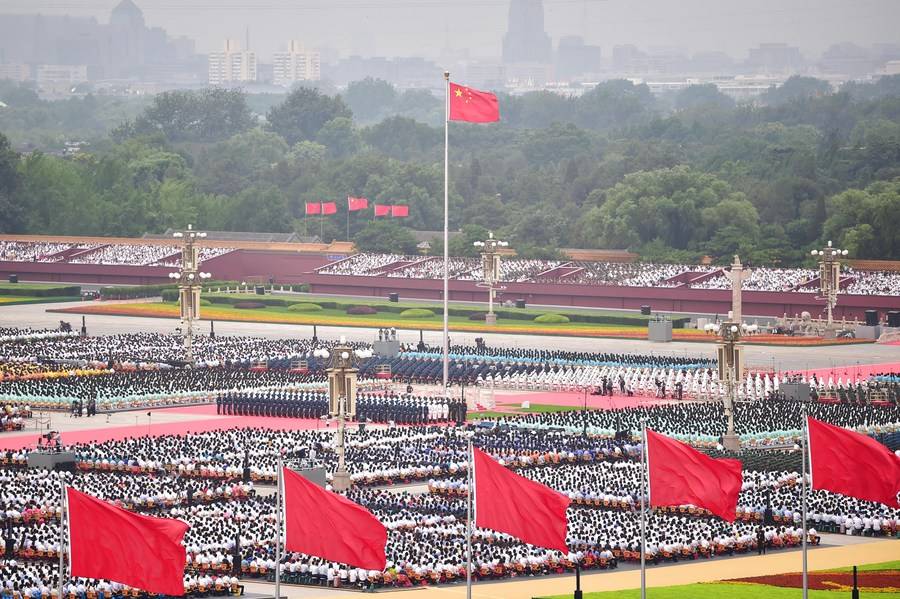
In 2012, Xi took power as the Chinese President and became one of the most powerful leaders of the country. Under his regime, almost two million Uyghurs and other ethnic minorities have been detained in internment camps in Xinjiang since 2017.
After years of denying the existence of the internment camps in Beijing, China in 2019 described the facilities as residential training centres that provide vocational training for Uyghurs, discourage radicalisation and help protect the country from terrorism.
However, several media reports and former detainees have said that those in the camps are detained against their will and subjected to political indoctrination, routinely face rough treatment at the hands of their overseers and endure poor diets and unhygienic conditions in the often overcrowded facilities. Former detainees have also described being subjected to torture, rape, sterilization, and other abuses while in custody.
China has been rebuked globally for cracking down on Uyghur Muslims in Xinjiang, with a handful of countries, the latest being Lithuania, terming the human rights abuses on the ethnic minorities as ‘genocide’.
The communist nation is also under fire after the global COVID-19 pandemic, which has infected and killed millions of people around the world. Many countries have called for a greater investigation in China’s Wuhan to uncover the origins of the deadly virus.
It has also been locked in tensions with its neighbours, such as Japan, India, the Philippines, Vietnam and Taiwan regarding the South China Sea, over which it claims full sovereignty and has passed a controversial law allowing it to fire upon any vessel it sees entering illegally into its waters.
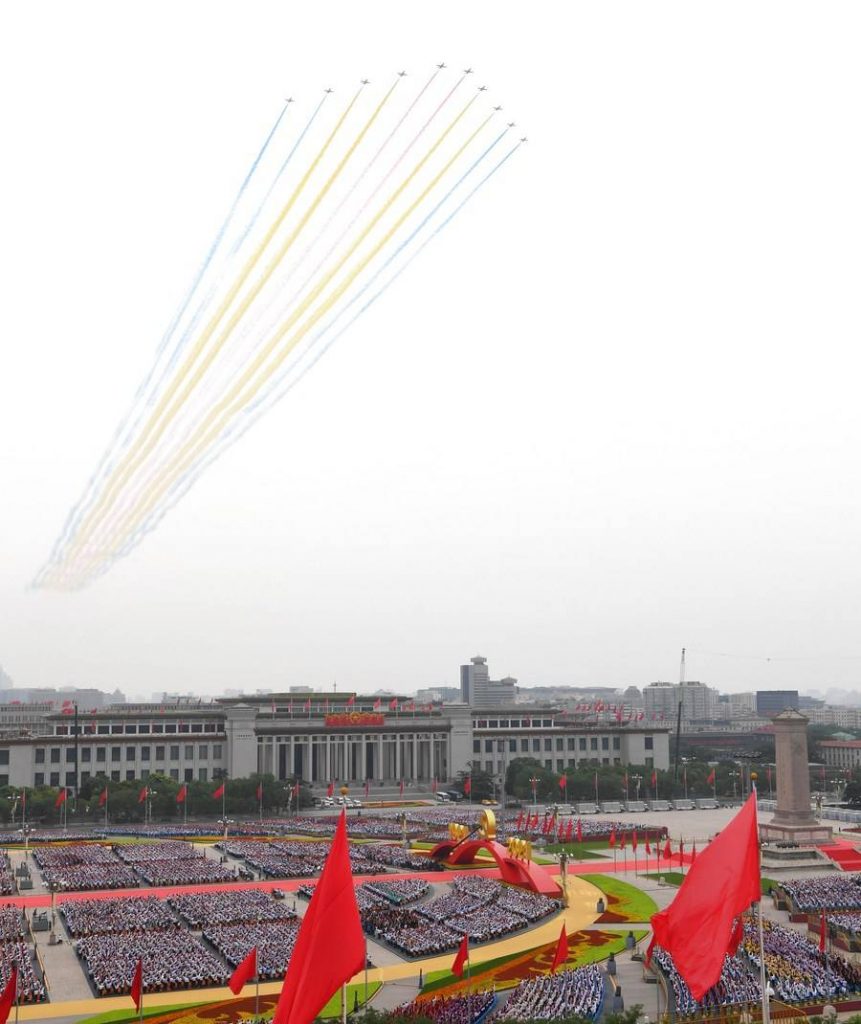
Elevating Chinese military
President Xi said that China will elevate its armed forces to world-class standards with the aim to equip itself with “greater capacity” to safeguard its “national sovereignty, security, and development interests.”
Addressing the marking the centenary of CCP, Xi said that “We must accelerate the modernization of national defense and the armed forces.”
Xi said the “people’s military is a strong pillar for safeguarding the socialist country and preserving national dignity.”
On a bellicose note, the Chinese president added that any attempt to divide the Party from the Chinese people or to set the people against the Party is bound to fail.
“The more than 95 million Party members and the more than 1.4 billion Chinese people will never allow such a scenario to come to pass,” Xi said.
ALSO READ: China determined to decide next Dalai Lama
He further said that resolving the Taiwan question and realizing China’s complete reunification is a historic mission and an “unshakable commitment” of the CPC.
“We must take resolute action to utterly defeat any attempt toward ‘Taiwan independence,’ and work together to create a bright future for national rejuvenation,” the Chinese President said.
China has also recently sent dozens of warplanes into Taiwan’s air defense identification zone. Beijing claims full sovereignty over Taiwan, a democracy located off the southeastern coast of mainland China, even though the two sides have been governed separately for more than seven decades.
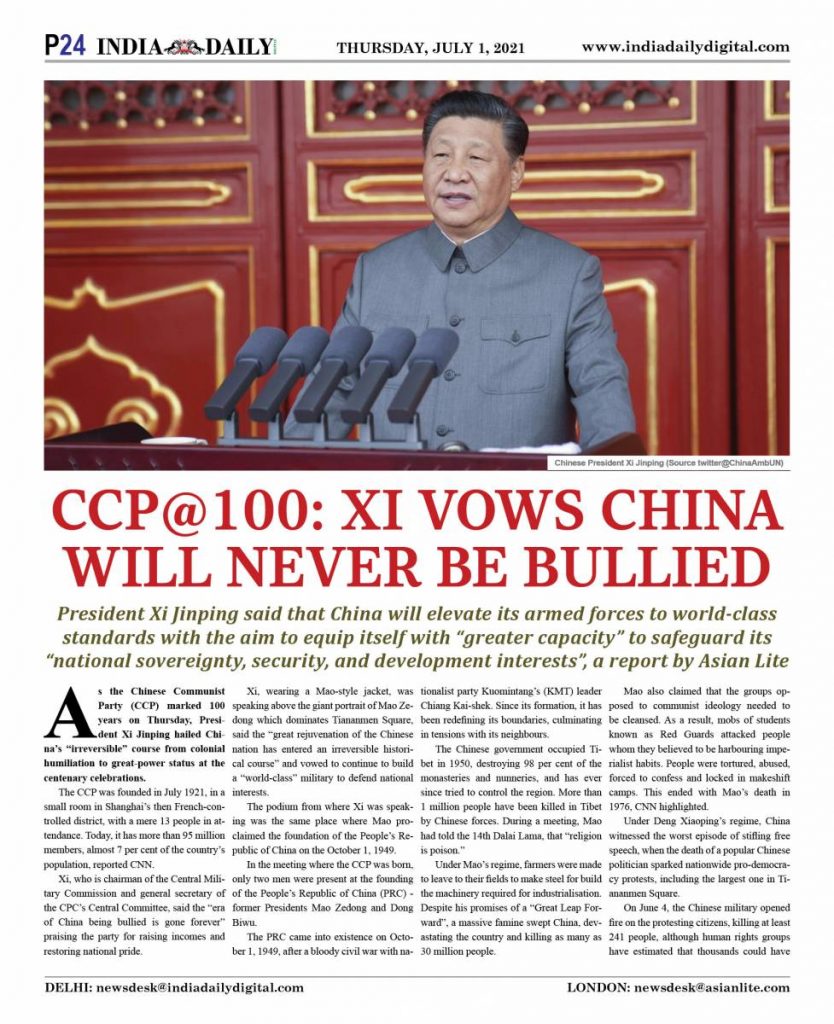
Strengthening jurisdiction on HK, Macao
President Xi also stressed on ensuring that the central government exercises overall jurisdiction over Hong Kong and Macao.
Xi, also the chairman of China’s Central Military Commission, said: “We will stay true to the letter and spirit of the principle of One Country, Two Systems, under which the people of Hong Kong administer Hong Kong, and the people of Macao administer Macao, both with a high degree of autonomy,” he said.
He also highlighted implementing the legal systems and enforcement mechanisms for the two special administrative regions to safeguard national security.
“While protecting China’s sovereignty, security, and development interests, we will ensure social stability in Hong Kong and Macao, and maintain lasting prosperity and stability in the two special administrative regions,” Xinhua quoted Xi as saying. (ANI/other agency inputs)
ALSO READ: MEPs demand action against China over HK
ALSO READ: 2021 is as much India’s moment as 1979 was China’s

